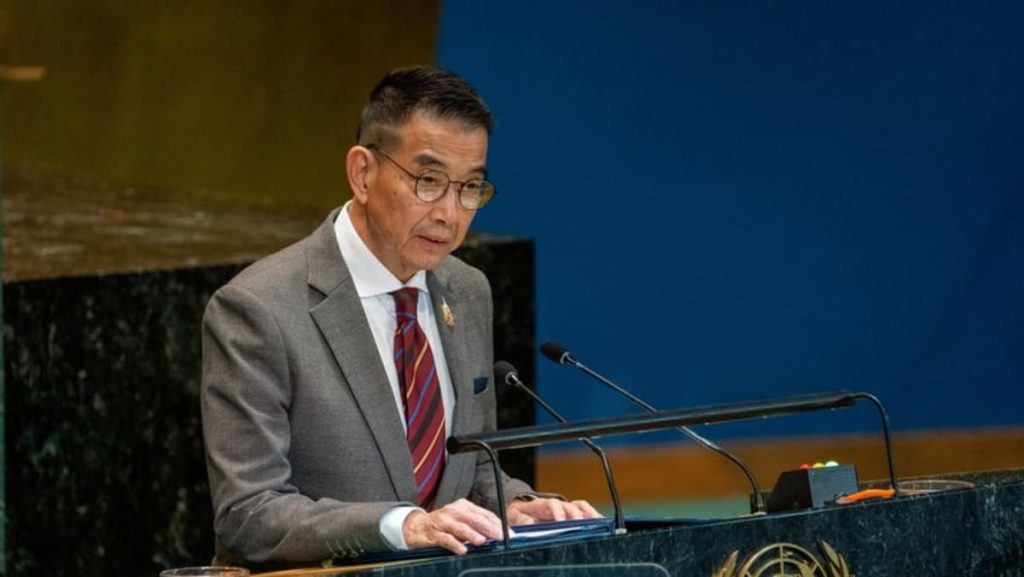Paragraph 1: Setting the Stage for Regional Dialogue on Myanmar
Thailand, situated at the heart of Southeast Asia, has taken on the role of facilitator in addressing the ongoing crisis in Myanmar. Following the military coup of February 2021, the country has descended into turmoil, marked by violent conflict, political instability, and a humanitarian crisis. Recognizing the regional implications of the situation, Thailand offered in October to host informal talks aimed at finding a path towards resolution. This proactive approach culminated in the announcement of two regional meetings scheduled for December 19th and 20th, 2024. These meetings are poised to bring together key stakeholders, including representatives from the Myanmar junta, neighboring countries, and members of the Association of Southeast Asian Nations (ASEAN), to discuss critical issues and explore potential solutions.
Paragraph 2: Addressing Border Security and Transnational Crime:
The first meeting, scheduled for Thursday, December 19th, focuses on the pressing concerns of border security and transnational crime. This targeted approach underscores the tangible impact of the Myanmar crisis on neighboring countries. The instability within Myanmar has fueled cross-border criminal activities, including drug trafficking, human trafficking, and the movement of armed groups. Representatives from Myanmar, along with officials from neighboring countries – China, India, Bangladesh, Laos, and Thailand – will gather to address these challenges collaboratively. The inclusion of Myanmar junta representatives in this meeting signifies a pragmatic approach to engaging with the de facto authorities on issues of immediate regional concern, despite the international community’s condemnation of the coup.
Paragraph 3: ASEAN’s Role and the Five-Point Consensus:
The second meeting, slated for Friday, December 20th, will convene at the foreign minister level and center on ASEAN’s engagement with Myanmar. This meeting will include "interested members" of ASEAN, suggesting a potentially broader participation than just the immediate neighbors involved in the Thursday meeting. The agenda will prominently feature discussions on ASEAN’s "Five-Point Consensus," a plan developed in April 2021 to address the Myanmar crisis. This consensus calls for an immediate cessation of violence, constructive dialogue among all stakeholders, the appointment of a special envoy of the ASEAN Chair to mediate the situation, humanitarian assistance, and a visit by the special envoy to Myanmar to meet with all parties involved. The effectiveness of the Five-Point Consensus has been limited by the junta’s lack of cooperation, and this meeting will likely explore ways to revitalize the plan or consider alternative approaches.
Paragraph 4: Challenges and Uncertainties Surrounding the Meetings:
The upcoming meetings are fraught with challenges and uncertainties. The level of Myanmar’s representation at the Friday meeting remains unclear, raising questions about the junta’s willingness to engage meaningfully with ASEAN. The exclusion of the National Unity Government (NUG), formed by ousted civilian leaders and representatives of ethnic minority groups, from these discussions further complicates matters. The NUG claims to be the legitimate government of Myanmar and enjoys considerable support within the country, but it has not been recognized by ASEAN or most international actors. The lack of NUG participation raises concerns about the inclusivity and representativeness of the talks, potentially hindering progress towards a comprehensive solution.
Paragraph 5: Malaysia’s Push for Re-engagement:
Concurrent with Thailand’s efforts, Malaysian Prime Minister Anwar Ibrahim has emphasized the need to bring Myanmar back to the forefront of ASEAN’s agenda. Malaysia has been a vocal critic of the junta’s actions and has advocated for a more assertive approach by ASEAN. This proactive stance by Malaysia signals a renewed focus on addressing the Myanmar crisis within the regional bloc. The convergence of Thailand’s facilitation and Malaysia’s advocacy could create momentum for a more robust and effective ASEAN response. However, achieving consensus among ASEAN members, who hold varying perspectives on how to engage with Myanmar, remains a significant hurdle.
Paragraph 6: The Path Forward: A Delicate Balancing Act:
The meetings in Bangkok represent a crucial step towards addressing the complex and multifaceted crisis in Myanmar. Thailand’s role as facilitator requires a delicate balancing act, navigating the sensitivities of engaging with the junta while upholding ASEAN’s principles of non-interference and consensus-based decision-making. The success of these meetings will depend on the willingness of all parties, including the Myanmar junta, to engage constructively and demonstrate a genuine commitment to finding a peaceful and sustainable solution. The international community will closely observe the outcomes of these meetings, hoping for tangible progress towards restoring democracy, stability, and respect for human rights in Myanmar. While the path ahead remains uncertain, the regional dialogue initiated by Thailand offers a glimmer of hope for a future free from violence and oppression for the people of Myanmar.

